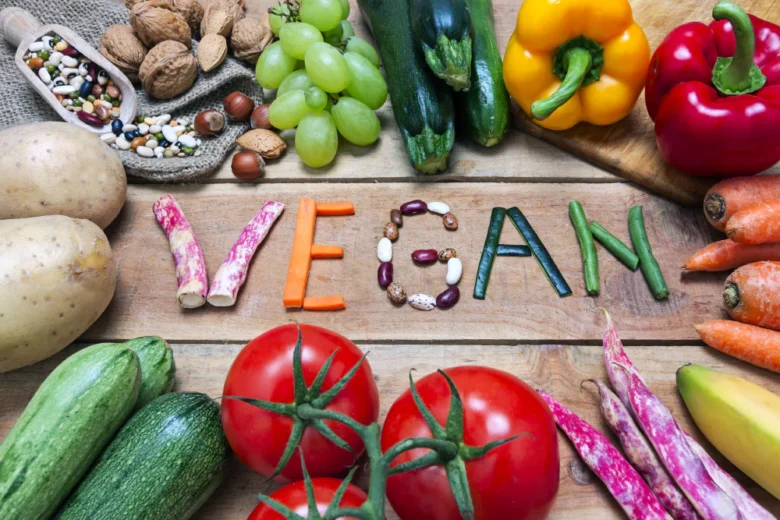Veganism is no longer a niche lifestyle but a global phenomenon. Documentaries exposing the reality of animal agriculture and growing health awareness have led to more people considering a switch to a plant-based diet. Veganism has evolved from avoiding animal products to a movement that promotes positive change in one’s life and for the planet. This growing movement is not slowing down, and it continues to transform industries, cultures and personal habits around the world.
Why are there so many vegans? What is it that makes this lifestyle appealing to people of all ages and backgrounds? Veganism has a huge impact, whether it is due to health, ethical or environmental reasons.
Understanding the Vegan Lifestyle
The vegan lifestyle is more than a diet. It’s also a philosophy that promotes compassion and mindfulness. Vegans abstain from using or consuming any animal products such as meat, dairy, honey, fur, wool, leather and eggs. Veganism can be a diet-only thing for some. Others extend it to every aspect of their lives, like avoiding cosmetics that are tested on animals or choosing sustainable fashion.
The lifestyle is not a result of restriction but of a conscious choice. Vegans align their values and actions by prioritizing animal kindness, environmental sustainability, personal health, etc. This is a fascinating way to live more consciously and respect the world around us.
The Health Benefits of Veganism
A plant-based diet has a profound effect on your health. Veganism has been shown to have many health benefits, including a reduced risk of chronic diseases like Type 2 diabetes and heart disease. The abundance of fruits and vegetables, whole grains and legumes in vegan diets makes them rich in antioxidants and fiber. These nutrients promote longevity, improve digestion, and strengthen the immune system.
Many vegans also report improved energy, digestion and skin. By removing heavily processed animal products, you can replace them with nutrient-dense plant-based foods. These nourish your body on a cellular basis. A poorly planned vegan diet can cause deficiencies. However, a balanced approach to nutrition offers many benefits.
Beyond Health
Veganism has many benefits that go beyond our own health. They also have a positive impact on the environment we live in. Animal agriculture contributes to greenhouse gas emissions, deforestation and water pollution. It also causes biodiversity loss. You can reduce your carbon footprint by switching to a plant-based diet.
Ethics also plays a major role. Each year, millions of animals are bred and killed for food in often inhumane circumstances. Adopting the vegan lifestyle is a way to stand up against these practices. Recognizing that our food choices can have long-lasting consequences and choosing compassion instead of cruelty is what it’s all about. Every vegan meal that you eat is an act of voting for a more compassionate, sustainable world.
Practical Tips to Transition to a Vegan Lifestyle
It’s not necessary to feel overwhelmed if you’re thinking about veganism. Transition gradually and start small. Start with Meatless Mondays or substitute one meal per day with plant-based alternatives. Try out different recipes and ingredients to see what you like. Focus on abundance, not restriction.
Tofu, lentils, chickpeas, and tempeh are all versatile, tasty, and nutritious protein sources. There are many options for dairy-free milks and cheeses. Fill your pantry with fresh fruits, vegetables, grains, legumes and spices to excite your palate. The community can make a big difference. Join online forums, engage with local groups of vegans for inspiration and support, or follow vegan influencers via social media. Now it’s easier to connect with other vegans and find resources.
Common Myths About Veganism
Veganism is surrounded by many misconceptions, ranging from the fear of protein intake to the belief that veganism is expensive or bland. These myths are often dispelled by the evidence and experiences of vegans.
A well-planned vegan meal plan, for example, provides enough protein to satisfy the needs of most people. Beans, grains, seeds and nuts are all excellent sources of protein. They also contain fiber and healthy fats. Many plant-based staples like rice, lentils and vegetables are more affordable than dairy and meat.
Taste? Another misconception! The plant-based food scene today is innovative and vibrant, with everything from BBQ jackfruit to creamy vegan ice cream. The options for vegan restaurants and home dining are just as diverse as they are delicious.
Conclusion
Consideration of veganism is more than just a personal choice. It’s also about making decisions that have a positive impact on the economy, community and planet. Every small change you make helps to shift the collective focus toward sustainability and compassion.
It may seem daunting to adopt a vegan lifestyle, but it is well worth it. You will enjoy better health, a healthier environment and a more compassionate world. Every step counts, whether you make a full commitment or incremental changes to reduce the amount of animal-based products that you consume.
There’s no time like the present to start reshaping your choices and aligning your habits with your core values. Take that first step—one plate, one choice, one meal at a time.
FAQs
1. Can a vegan diet be consumed by all age groups?
Yes! A vegan diet can be adapted to meet the nutritional requirements of all ages, including teenagers and seniors, with proper planning.
2. Can I get enough proteins on a vegan-friendly diet?
Absolutely! Beans, lentils, tofu, tempeh, quinoa and nuts are all plant-based proteins. They are also nutritious and delicious.
3. Is going vegan expensive?
Not necessarily. Although some vegan products are expensive, many staples such as rice, beans and vegetables and fruits can be found at a reasonable price.
4. What can I do to curb my cravings for animal products?
Cravings can be normal. You can find plant-based alternatives to dairy products like oat milk or pulled pork.
5. Do I need to take supplements if I am on a vegan-friendly diet?
Vegans who do not consume enough plant-based foods may need to take vitamin B12 supplements. For guidance, consult a nutritionist or doctor.




